Enjoy the Beautiful Waters of Virgin Islands National Park"Look But Don't Touch!"
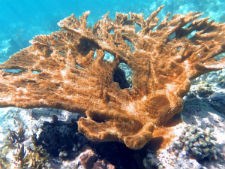
CoralContact with corals can cause severe damage to them, and injury or infection to you. 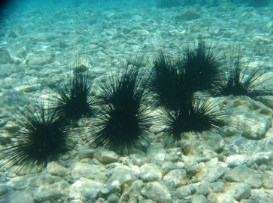
Long-spined Sea UrchinsFound in reefs, seagrass beds or on rock piles on the sea floor, these urchins have long spines that puncture the skin if stepped on or touched. The spines are usually absorbed in a few days. Do not try to pull spines out. In some cases, they may have to be removed by a doctor.Prevention: Avoid any contact with urchins. Symptoms: Redness, pain and swelling. Remedy: Soak the wound in hot water. Vinegar may help dissolve the spines. 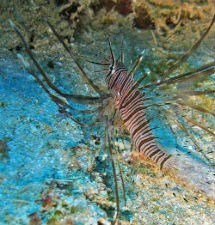
NPS Photo LionfishThese non-native fish have poisonous venom-tipped spines. 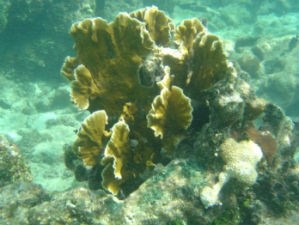
Fire CoralThese corals have strong stinging cells and are either blade-like (shown) or encrusting (flat), and are mustard-yellow to dark orange, often with white edges. 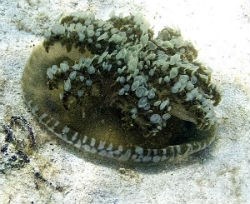
Jellyfish and Sea WaspsThese animals are not commonly found in waters here. Avoidance is the best practice. Jellyfish and sea wasps both have soft gelatinous bodies with long stinging tentacles that discharge when touched. 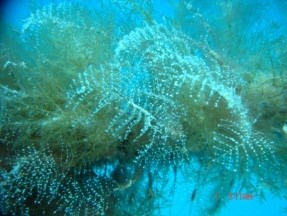
HydroidsHydroids resemble a feathery plant, related to jellyfish and corals, and have strong stinging cells. Find them attached to rocks and plants, particularly mangrove roots, on docks, buoys and mooring lines. 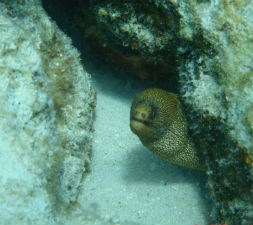
EelsEels are usually found in rock piles, under coral ledges and in caves. Eels are not aggressive by nature but can attack if provoked. 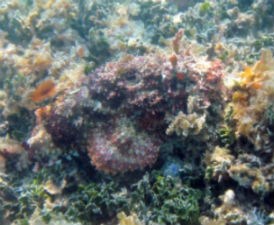
ScorpionfishExcellent camouflage helps these fish blend into seagrass, coral reef and rocky habitats. Venomous spines line the dorsal, anal and pectoral fins. 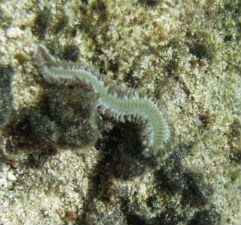
Fire/Bristle WormFireworms, or bristleworms, are commonly found in sea grass, on or under boulders, and coral. Thousands of fine venom-filled, needle-like bristles can break off and become embedded in the skin. 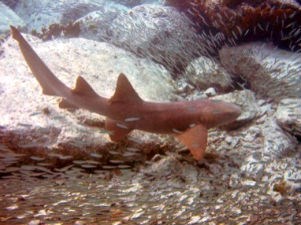
SharksShark attacks are extremely rare in the Virgin Islands. Stand Only in Sand, Never on CoralDownload the Things to Avoid While in the Water for future reference. |
Last updated: February 11, 2019
